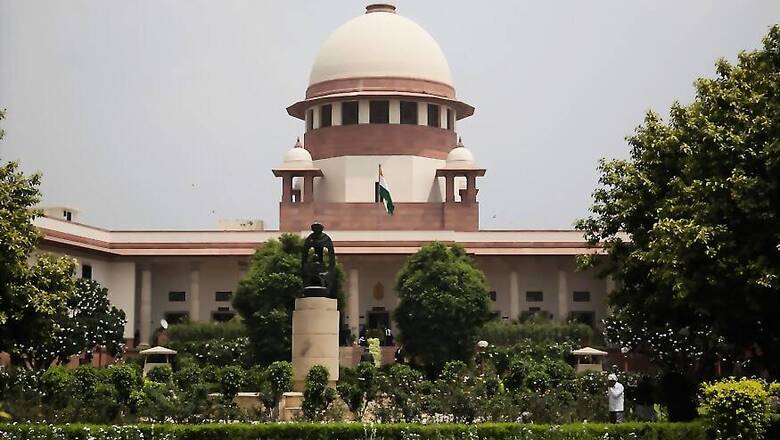
views
New Delhi: The Supreme Court has warned the Central government against a proposed amendment in the Arbitration and Conciliation Act, pointing out that if the reason for the 2015 amendment in the law was “delay” and “interference” by courts, the suggested amendment would put all such changes on a “back burner”.
Citing the proposed amendment to Section 84 in the Act, a bench of Justices Rohinton F Nariman and Navin Sinha questioned the rationale of the anticipated reversal of the changes brought about in 2015 if courts happened to be the real reason for delaying the arbitration proceedings.
The ‘Statement of Objects and Reasons’ of the Amendment Act, 2015 had stated as: “Interpretation of the provisions of the Act by courts in some cases have resulted in delay of disposal of arbitration proceedings and increase in interference of courts in arbitration matters, which tend to defeat the object of the Act.”
However, Section 87 has been planned to be introduced by the Central government to clarify that unless parties agree otherwise the Amendment Act, 2015 shall not apply to arbitral proceedings that commenced prior to the amendment notified on October 23, 2015, and also to all court proceedings which are arising out of or in relation to such arbitral proceedings.
The SC bench took note of the fact that on one hand, the government cited court proceedings in 2015 as the chief reason for delaying arbitration but on the other, it had per se decided to keep all court proceedings out of the ambit of the applicability of the amendments.
“The government will be well-advised in keeping the aforesaid ‘Statement of Objects and Reasons’ in the forefront if it proposes to enact Section 87 on the lines indicated in the government’s press release dated 7th March, 2018. The immediate effect of the proposed Section 87 would be to put all the important amendments made by the Amendment Act on a back-burner,” said the Court.
It pointed out that the effect of Section 87 would be that in all matters which are in the pipeline, despite the fact that Section 34 proceedings (wherein an application is made to a court against an arbitral award) have been initiated only after October, 2015, yet the old law would continue to apply “resulting in delay of disposal of arbitration proceedings by increased interference of courts, which ultimately defeats the object of the Act.”
The bench further referred to the Law Commission’s 246th Report that itself bifurcated proceedings into two parts so that the Amendment Act, 2015 can apply to court proceedings commenced on or after October 23, 2015.
“It is this basic scheme which is adhered to by Section 26 of the Amendment Act (about applicability to court proceedings), which ought not to be displaced as the very object of the enactment of the Amendment Act would otherwise be defeated,” cautioned the bench.
The apex court said that a copy of its judgment should be sent to the Ministry of Law and Justice and Attorney General for India in view of the concerns expressed by the bench.
The bench was adjudicating a bunch of petitions dealing with the applicability the amendments to the court proceedings arising out of arbitration commenced before 23 October, 2015.
Resolving the conflicting opinions rendered by various high courts, the top court ruled that “in all cases where the Section 34 petition is filed after the commencement of the Amendment Act, and an application for stay having been made under Section 36 therein, will be governed by Section 34 as amended and Section 36 as substituted.”
The Amendment Act is to be applied only prospectively with effect from the date of its commencement, and only to arbitral proceedings and to court proceedings in relation thereto, which have commenced on or after the commencement of the Amendment Act.
The Court underscored that Section 26 does specifically provide that “the court proceedings in relation to arbitral proceedings”, being independent from arbitral proceedings, and thus, such court proceedings would not be viewed as a continuation of arbitral proceedings, but would be viewed separately.
Besides, there is no substantive vested right in a judgment debtor to resist execution, said the bench, adding Section 36, as substituted, would apply even to pending Section 34 applications on the date of commencement of the Amendment Act.




















Comments
0 comment